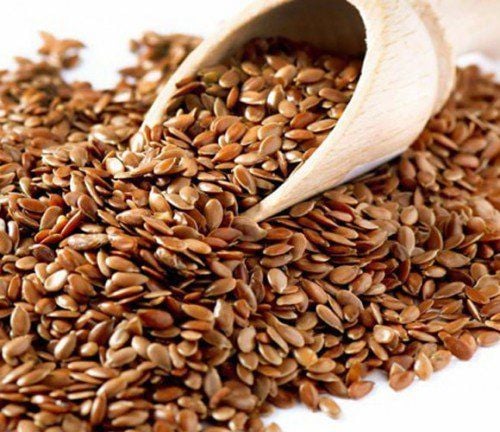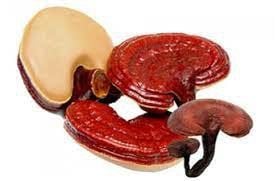Fenugreek has long been used to enhance health and treat various ailments, ranging from digestive issues to skin care. Specifically, this medicinal plant is being used to increase testosterone levels in men. So, does fenugreek actually help boost testosterone?
1. What is Fenugreek?
Fenugreek (scientifically known as Trigonella foenum-graecum L.) is a plant native to India and North Africa. The leaves and seeds of fenugreek have a complex aroma that is both sweet and slightly bitter. Today, this plant is cultivated and consumed around the world.
Parts of the fenugreek plant, such as the seeds and leaves, are used in supplements, powders, tonics, teas, and are also common ingredients in cooking, particularly in Indian cuisine. Throughout history, fenugreek has been used as a natural remedy for various ailments. For example, the seeds are rich in saponins and coumarins—chemicals associated with many health benefits, including lowering blood sugar and cholesterol levels.
In fact, fenugreek was used in ancient Rome to relieve labor pains in pregnant women and treat weakness and swollen legs in traditional Chinese medicine.
2. Can Fenugreek Help Boost Testosterone?
Testosterone is a sex hormone in both men and women that affects sexual function, energy levels, cognitive function, bone health, mood, etc.
Testosterone levels naturally decline as you age. Conditions like obesity and diabetes can also cause testosterone levels to drop, regardless of age. Testosterone deficiency is estimated to affect 39% of men over the age of 45. This condition is often treated with hormone replacement therapy.
Many believe that supplements containing fenugreek help naturally boost testosterone levels. This is because fenugreek contains compounds like furostanolic saponins, which are thought to increase testosterone production. Some studies have shown that fenugreek supplementation can improve testosterone levels and symptoms related to low testosterone, such as low libido. For instance, an 8-week study of 49 athletic men showed that taking 500mg of fenugreek daily slightly increased testosterone levels, significantly improving strength and body fat compared to a placebo group.
On the other hand, protodioscin, a type of saponin in fenugreek, helps effectively increase testosterone. A 12-week study involving 50 men demonstrated that those who supplemented with 500mg of fenugreek daily, which contained concentrated protodioscin, saw significant improvements in their testosterone levels.
The study showed that testosterone levels increased by up to 46% in 90% of participants. Moreover, the majority of the fenugreek-supplemented group experienced improvements in mood, energy, libido, and sperm count.
2. Can fenugreek help boost testosterone?
Testosterone is a sex hormone in both men and women that affects sexual function, energy levels, cognitive function, bone health, mood, and more.
Testosterone levels naturally decline as you mature. Health conditions such as obesity and diabetes can also cause low testosterone levels, no matter how old you are. Testosterone deficiency is estimated to affect 39% of men over 45 years of age. This condition is usually treated with hormone replacement therapy.
Many people believe that fenugreek supplements help increase testosterone levels naturally. Because this plant contains compounds called furostanolic saponins that increase testosterone production. Several studies have shown that fenugreek supplements improve testosterone levels and symptoms associated with low testosterone such as low sex drive. For example, an 8-week study in 49 athletic men found that supplementing with 500mg of fenugreek per day slightly increased testosterone levels, significantly improving strength and body fat compared to the control group. use a placebo.
On the other hand, Protodioscin is a saponin in fenugreek that effectively increases testosterone. A 12-week study in 50 men demonstrated that those who supplemented with 500mg of fenugreek daily containing concentrated amounts of protodioscin significantly improved their testosterone levels.
The study showed an increase in testosterone levels of up to 46% in 90% of the participants. Furthermore, the majority of the fenugreek supplement group experienced improvements in mood, energy, sex drive, and sperm count.

Furthermore, a 12-week study involving 120 men aged 43–75 showed that those who took 600mg of fenugreek seed extract daily had higher testosterone levels and improved libido compared to the control group.
However, some studies have concluded that treatment with fenugreek does not increase testosterone. Therefore, when using any medication or supplement containing fenugreek, it is important to consult with a doctor.
3. Other Benefits of Fenugreek
Fenugreek has been shown to help improve various health conditions:
- Increase breast milk production:
Some studies have shown that fenugreek significantly increases breast milk production. - Reduce high blood sugar:
Studies indicate that fenugreek supplementation can reduce blood sugar levels and hemoglobin A1c—an indicator of long-term blood sugar control in people with diabetes. - Anti-inflammatory:
Fenugreek seeds contain anti-inflammatory compounds like flavonoid antioxidants, which help reduce symptoms of certain inflammatory conditions. - Reduce cholesterol:
Fenugreek significantly reduces total cholesterol levels in people with prediabetes and type 2 diabetes. - Anti-cancer:
Numerous studies have shown that fenugreek may kill certain cancer cells, such as lymphoma and breast cancer cells.
4. Ways to Boost Testosterone
A few methods to increase testosterone levels in men include:
- Reduce body fat:
Overweight men are more likely to have low testosterone levels. Therefore, losing weight can help increase testosterone levels. - Exercise:
Exercise, especially high-intensity interval training (HIIT), has been shown to increase low testosterone levels in aging men. - Healthy diet:
A diet rich in protein, healthy fats, fruits, and vegetables, while limiting processed foods and added sugars, can help boost testosterone levels.

- Manage blood sugar levels:
High blood sugar can increase the risk of developing low testosterone. A healthy diet, exercise, and reducing body fat can help lower high blood sugar. - Get enough sleep:
Lack of sleep can reduce testosterone levels. Ensuring quality sleep will help balance testosterone levels. - Limit exposure to pollutants:
People frequently exposed to pollutants like air pollution are at risk of low testosterone levels.
Please dial HOTLINE for more information or register for an appointment HERE. Download MyVinmec app to make appointments faster and to manage your bookings easily.
References: healthline.com













